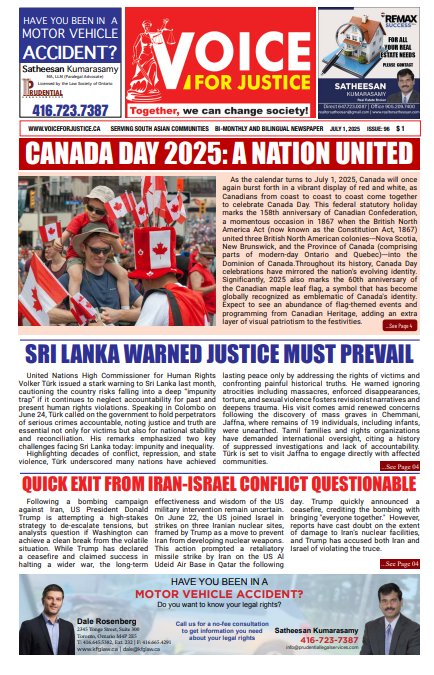ITAK Sends Urgent Letter to Sri Lankan President Over Chemmani Mass Grave
12-Jul-2025.

The ITAK has issued an urgent letter to President Anura Kumara Dissanayake, expressing grave concern over the recent discoveries at the Chemmani mass grave and calling for immediate action to uncover the truth and bring perpetrators to justice.
In their letter, ITAK President C.V.K. Sivagnanam and General Secretary M.A. Sumanthiran noted that, when considered alongside other mass graves discovered in Tamil areas of the North and East, these excavations provide compelling evidence of war crimes and genocidal acts committed against Tamils in Sri Lanka.
According to the letter, the Chemmani site is symbolic of a long and unresolved history of enforced disappearances and extrajudicial killings that continued into the mid-1990s.
In 1998, Lance Corporal SomaraITAK Rajapaksa, convicted of raping and murdering Tamil schoolgirl Krishanti Kumarasamy and her family, testified in court that hundreds of Tamil civilians were buried in the same area.
Subsequent excavations in 1999 uncovered 15 skeletal remains, including two identified as people who disappeared in 1996. Despite evidence confirming violent deaths, the investigations stalled, and no justice was delivered.
In early 2025, renovations at the Chemmani-Ariyalai-Siththupathi Hindu Cemetery led to the discovery of additional human remains.
Under a court order, excavations were resumed and have so far uncovered around 65 skeletons, including children. Personal belongings such as toys, schoolbags, and clothing fragments were also found, all now preserved for forensic analysis.
The ITAK warned that Sri Lanka must fully acknowledge this painful history and place truth at the center of any transitional justice process. They noted that hundreds of Tamil families are still searching for answers more than 16 years after the end of the war, and that continued silence is a profound moral failing.
Among their demands, the ITAK called for consolidating the 1999 and 2025 investigations into a single judicial process, engaging international forensic experts, publicly releasing all reports, and repatriating remains currently believed to be held at the University of Glasgow.
The letter concluded by affirming that reconciliation without truth and accountability is an illusion and pledged the ITAK’s full support for credible, transparent action.







